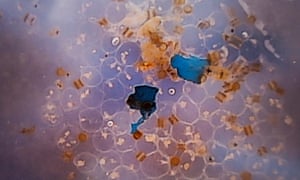 Rajan Datar talks to scientists Ajay Mishra, Andrea Sella and writer Susan Freinkel about the …
Rajan Datar talks to scientists Ajay Mishra, Andrea Sella and writer Susan Freinkel about the …
 It's not too much of a stretch to say that plastic made the modern world possible.
It's not too much of a stretch to say that plastic made the modern world possible.
 Interesting question.
Interesting question.
Plastic is a word that originally meant “pliable and easily shaped.” It only recently became a name for a category of materials called polymers. By Robert Plummer Business reporter, BBC News. But how did the world become so dependent on it in the first place? To envision the magnitude of our water pollution from plastic, you need to see the Great Pacific Garbage Patch. Plastic in this way has changed the economy since now products are more affordable. Global plastic waste disposal has changed over time: there was virtually no recycling of plastics prior to 1980, while in 2015, an estimated 20% was recycled. There is no place on Earth that plastic hasn’t reached. Plastic pollution has grabbed the world’s attention, and with good cause. Used in almost every single industry in a vast range of ways thanks to its versatility, high durability and ability to be moulded into whatever shape necessary, no material has changed (and … The ocean is becoming a “plastic soup” due to the astonishing level of plastic debris and toxicity it causes. The Chemicals in Plastic In the past 200 years, the world has been transformed by a succession of innovative new machines, inventions and gadgets. From the hip: Economically: As Xander mentioned, they are cheap and versatile. The word plastic is a common term that is used for many materials of a synthetic or semi-synthetic nature. Both durable and cheap, plastic was being churned out of factories at unprecedented rates during the second world war. Plastic fantastic: How it changed the world. To figure out, imagine a world where all of today’s plastics were instead made of wood, rubber, metal, stone or glass.
 Rajan Datar talks to scientists Ajay Mishra, Andrea Sella and writer Susan Freinkel about the …
Rajan Datar talks to scientists Ajay Mishra, Andrea Sella and writer Susan Freinkel about the …It's not too much of a stretch to say that plastic made the modern world possible.
 Interesting question.
Interesting question.